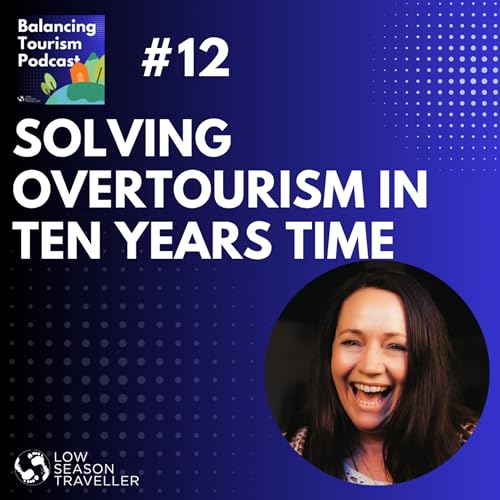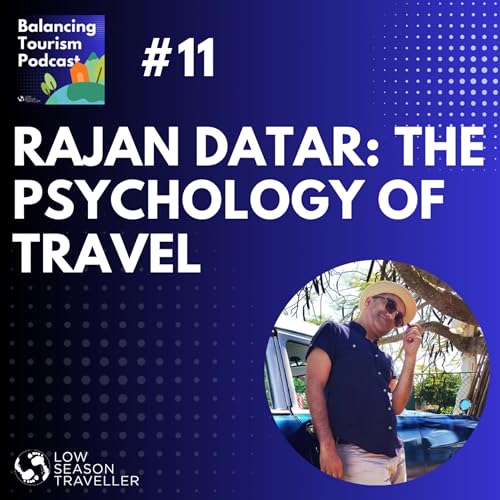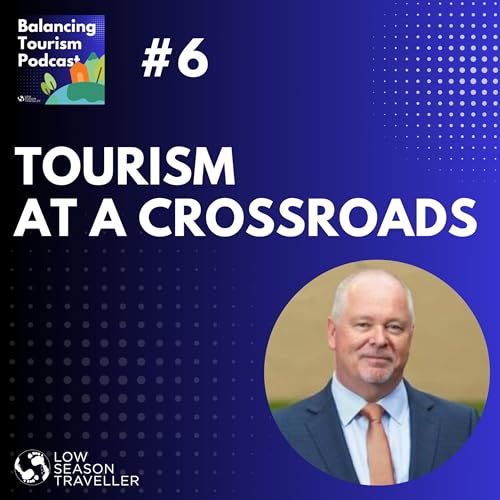Join host Ged Brown for a timely and thought-provoking conversation with Tricia Duffy, strategy consultant, singer-songwriter, and founder of In Ten Years Time. Together, they explore how rethinking time, specifically, looking 10 years ahead, can help the tourism industry better navigate today’s complex challenges.
This isn’t a theoretical chat, it’s a deeply practical and inspiring look at how creativity and long-term thinking can foster more balanced, sustainable, and meaningful tourism.
From destination planning to personal fulfilment, Tricia shares insights that are just as relevant to policymakers as they are to passionate travellers.
About Tricia Duffy
Tricia Duffy is the founder of In Ten Years Time, a podcast and consultancy helping people and organisations create intentional long-term plans. A former BBC and Sky strategist turned creative entrepreneur, Tricia blends business insight with artistic sensibility. She's also a touring musician and advocate for creativity as a tool for personal growth and social change. Learn more at intenyearstime.com
Key Discussion Points
Long-Term Thinking in Tourism
• Why most tourism strategies stop at 3 years, and what’s lost as a result
• How 10-year planning helps destinations prepare for overtourism, climate shifts, and economic turbulence
• Bhutan's Gross National Happiness model as a radical alternative to GDP
• How long-term thinking improves agility, not just vision
The Creativity Crisis
• Why creativity is often undervalued in tourism and business strategy
• How a daily creative practice supports mental health and innovation
• The neuroscience of imagination and how it helps solve real-world problems
• Creativity as cultural heritage: why it's essential to protect and promote
Personal Transformation Through Travel
• What Madagascar taught Ged about joy, poverty, and western assumptions
• Tricia’s life shift: from corporate strategy to songwriting and speaking
• How creativity helped Tricia redefine her professional identity after the pandemic
Sustainable Tourism & Cultural Resilience
• Why rain, reflection, and “off-season” magic matter more than we realise
• The overlooked beauty of quieter seasons and the value they offer both visitors and communities
• How embracing the arts and slowing down can enhance travel experiences
• Using imagination as a tool for more ethical and empathetic tourism policy
Memorable Quotes
🗣️ “Ten years is far enough away that you can imagine freely without limits. That’s where the magic starts.” – Tricia Duffy
🗣️ “If you don’t know where you’re going, how can you pivot?” – Tricia Duffy
🗣️ “Good songs are written. Great songs are rewritten.” – Tricia Duffy
🗣️ “Quiet cities are beautiful cities.” – Ged Brown
Key Takeaways
- Plan further ahead – Destinations need longer-term visions, not just quick wins
- Creativity isn’t optional – It’s essential for innovation, resilience, and wellbeing
- Encourage imagination – Give communities and teams the freedom to dream big
- Think beyond visitor numbers – Consider happiness, cultural heritage, and environmental health
- Celebrate low seasons – Find and promote the magic in quieter times and places
Why This Episode Matters
In a sector often caught in short-term cycles, driven by annual budgets, election timelines, or quarterly KPIs - this episode is a call to zoom out. Tricia Duffy offers a powerful case for reintroducing imagination, creativity, and long-term visioning into the way we design tourism.
If we want better tourism outcomes for people, planet, and places, we must learn to think bigger and longer. Whether you're a tourism board exec, DMO strategist, travel journalist, or conscious traveller, this conversation is a gentle but firm push to see beyond the next season—and shape the decade ahead.
 Jun 17 20251 hr and 4 mins
Jun 17 20251 hr and 4 mins Jun 6 20251 hr
Jun 6 20251 hr Apr 25 202555 mins
Apr 25 202555 mins Mar 21 202530 mins
Mar 21 202530 mins Mar 14 202545 mins
Mar 14 202545 mins Mar 8 202552 mins
Mar 8 202552 mins Feb 11 202531 mins
Feb 11 202531 mins 48 mins
48 mins
